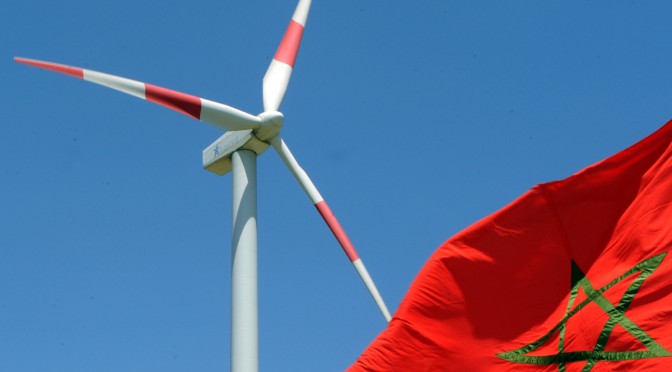Morocco has announced plans to invest nearly $11 billion in solar and wind energy projects, aimed at turning the country into an exporter of alternative energy by 2020.
In a statement to Al-Hayat, Moroccan sources declared that “electricity-generating solar and wind energy projects, implemented by Morocco in several regions in the east and south of the country, with investments worth approximately 90 billion dirhams [$11 billion], will allow Rabat to turn from an importer into an exporter of alternative energy by 2020, through building five solar energy stations.”
Oil and oil-derivatives importation cost Rabat $13 billion in 2013. Energy subsidies currently cost around 35 billion dirhams in the local market, compared to 54 billion in 2012. This negatively affects the trade balance, the overall financial balance and the budget deficit, estimated at 6% of the gross domestic product.
Sources reported that nine gigawatts of new energy would be produced, a 20% increase over current production, thus supplying around 42% of thermal electricity.
“We will have an electricity and energy surplus that can be sold to other close countries, particularly in Europe and Africa. This is currently happening in the energy grid between Algeria and Spain,” the sources added.
Energy exports will contribute to improving the trade balance and increasing Rabat’s hard currency resources, thus boosting development. Sources believe that scientific research in the field of future energies constitutes one of the options within the project, just like modern industries in the field of automotives, airplanes and smartphones, in which Morocco is a regional pioneer.
Saudi Power Energy International Group is building the first solar energy station in Morocco at a cost of over $900 million. The station will become operational in 2015. Other proposals are underway to build a second station with an overall production of 500 million megawatts in the city suburbs. Upon project completion, Morocco will become the Arab and Middle Eastern country that uses clean energies the most at the beginning of the next decade.
The Moroccan sources considered Rabat capable of ensuring the funding to build all wind and solar energy units because they are part of a strategic high-priority plan. Algeria is pressuring some parties that are supporting the Moroccan project about the funding of some energy stations in the desert. Sources related the cause to “regional political conflicts.”
Minister of Foreign Affairs and Cooperation Salaheldin Mizwar said that Rabat “has received the needed financial, political and technical support for such strategic projects. There are no funding problems because some states and international and regional financial groups are supporting the solar energy project in Morocco.”
American Forbes magazine wrote, “Giant companies working in the field of energy in North Africa have shown interest in the solar energy project in Morocco. They are excited to expand their activities and might even transfer some of their activity from Algeria, Libya and Egypt to Morocco. The companies pointed out that the Algerian-Moroccan dispute did not affect the decisions of international companies.”
“The problem of funding will not deter Morocco from its ambitious project that is backed by European countries, the Gulf and the United States, in addition to China and Japan, which encourage solar energy,” Forbes added.
Former US Secretary of State Hillary Clinton participated, along with King Mohammed VI, in the launch ceremony of the solar energy project in November 2009 in Ouarzazate in the south. The United States renewed its support for these projects during the summit, which brought together US President Barack Obama and the king of Morocco at the end of 2013 in the White House.
Rabat is looking forward to becoming a source of clean energy and collecting extra treasury returns, estimated to range between $7 billion and $10 billion, by 2021. It is also hoping to increase its oil and gas revenues — a prospect that is surrounded by extreme secrecy, although major discoveries of fossil energy have been unveiled. British and Australian companies have dug wells in several Moroccan regions, thereby confirming these discoveries.
On the other hand, government sources confirmed to Al-Hayat that the government will lift subsidies and will gradually liberalize the hydrocarbons sector in 2014. It has already lifted fuel and gasoline subsidies and intends to do the same for all hydrocarbons that are subsidized by the compensation fund. Moreover, the government is seeking to channel a portion of these expenses to poor groups whose classification is a subject of dispute among different political parties in the government.


